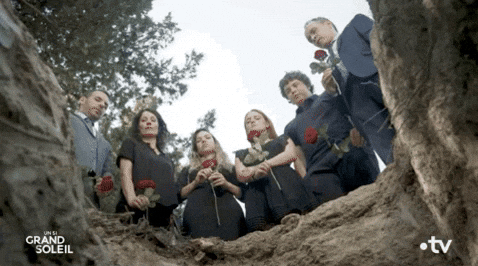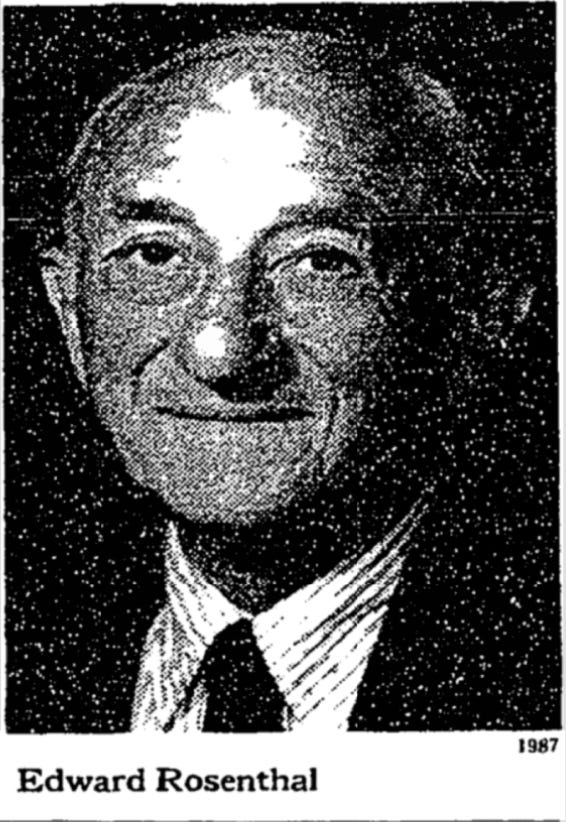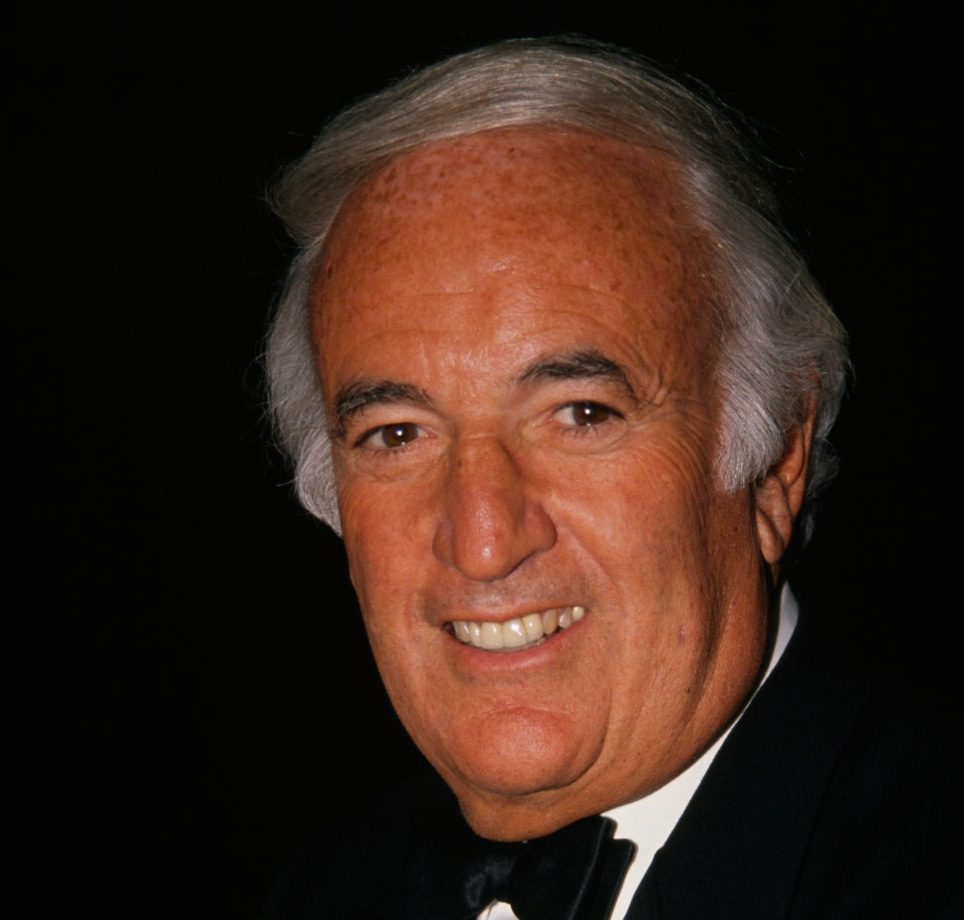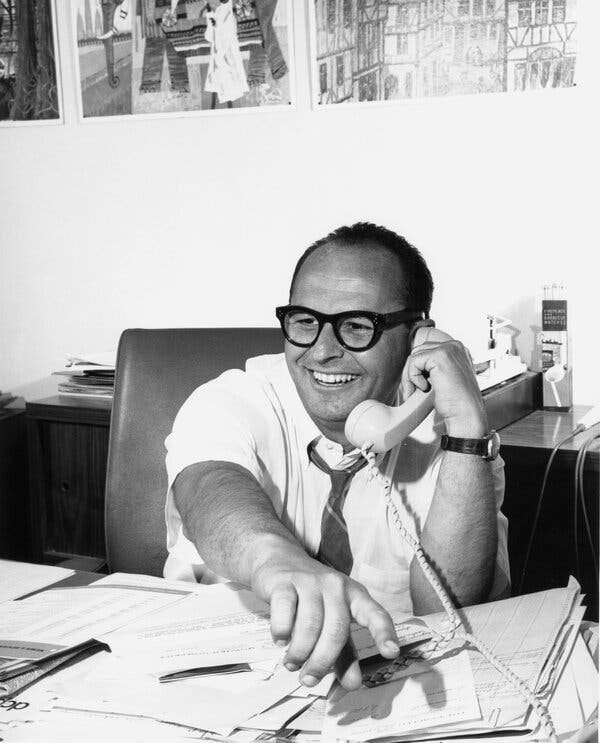
And we’re back. Can’t Get Much Higher is one of the few places on the web dedicated to the intersection of music and data. Each month, I send out four data-driven analyses, two interviews with musical luminaries, one link roundup, and one deep dive into reader questions. Only some of those are available to all subscribers. If you want everything, consider taking out a paid subscription.
How a Funeral Home Became Warner Records
By Chris Dalla Riva
Nintendo has always been a gaming company but probably not in the way you think. The Japanese firm was originally founded in 1889 to produce handmade playing cards. Given that the Game Boy wouldn’t come out for another century, you might be wondering what they were doing for all those decades. Well, mostly making playing cards.
After the firm went public in the 1960s, they used an influx in cash to expand into other lines of business. That’s when they started to dabble into electronics. That dabbling turned into an obsession, the company soon dedicating more resources to the nascent video game business. When Donkey Kong was released in 1981, an empire was born.
In short, corporate history is strange. If you want to weather the highs and lows of the market, you’ve got to be nimble. That nimbleness is even necessary when you work in a line of business that is allegedly recession-proof, like funeral homes. How could you go out of business when people are always dying? Steve Ross wasn’t one to rest on his laurels, though. You’ve got to go back a bit to understand what I mean.
In 1897, Louis Meyers established a business in Manhattan focused on transportation for funeral services. As the business grew, Meyers began to open up his own funeral parlors. His grandson Edward Rosenthal would make it the largest funeral services group in the United States by the 1950s. Around that time, he brought his daughter’s husband Steve Ross into the business.
According to his obituary in The New York Times, Ross realized that the funeral limos were not being used during the evening, so he “arranged for a large limousine service to hire the cars in the evening.” That company, according to the Times, “became instantly profitable.”
With a good sense for business opportunities, Ross launched a rent-a-car company. This is when the web of companies began to spin in all directions. The funeral and rent-a-car businesses were soon merged with the Kinney Parking Company, a parking lot operator with ties to organized crime. A cleaning company joined the bunch before Ross took the company public in 1962 as the “Kinney Service Corporation.”
Ross was not to be satisfied with car and funeral services, though. In 1969, Kinney purchased Warner-Seven Arts, the conglomerate that controlled the assets of the Warner Bros. film studio and a handful of record labels, including Reprise and Atlantic. A few years later, the non-entertainment assets were sold off and Steve Ross was now the head of the newly named Warner Communications. A man who made his money in the drab corridors of funeral homes was now thrust into the posh world of music and movies.
Ross operated in that world with great facility. His labels were some of the most successful in the 1970s. His movie studios released hit after hit. His investments in Atari, Nickelodeon, and MTV proved prescient. Steve Ross, the funeral man and entertainment guru, couldn’t miss. At least for a while.
Warner Communications began to falter in the 1980s. After staving off hostile takeover attempts throughout the decade, Ross negotiated a blockbuster deal to merge Warner with Time in 1989. This brought together record labels, magazines, cable networks, movie studios, and comic books to form the world’s largest media company. It ended up not being all it was cracked up to be.

The deal saddled the new company with billions in debt. Ross, who would die from prostate cancer in 1992, also clashed with Time executives. This rocky merger seemed to predict the future.
In 2000, Time Warner merged with AOL, often called one of the most disastrous mergers in history. Warner’s famed record labels would be sold off by 2003. In the next 15 years, AOL would be divested, Time would be broken off into its own company, and whatever was left was purchased by AT&T in another ill-fated transaction. Given all of the businesses killed by the corporate carnage, the one thing Warner probably needed was funeral services. Luckily, the funeral company that became Steve Ross’s Warner Communications still exists. You can visit it at 180 West 76th Street in New York City.
Who Should Run a Record Company?
Steve Ross is kind of strange figure in music history. First, despite building an ever-growing entertainment behemoth that lives on to this day, he’s largely forgotten. In fact, when I first searched the name “Steve Ross” online, the top result was a painter who happens to be the son of Bob Ross.
Second, Ross managed to build this behemoth without any experience in entertainment. That goes against typical notions of who should succeed in entertainment. In fact, known for his lush suits and lavish salary, Steve Ross feels like the quintessential guy who would run an entertainment company into the ground, artists and actors hating his every decision. That wasn’t the case, though.
Over the years, there have been scores of labels run by musicians that have failed spectacularly. The problem is that the skills to run a label aren’t exactly the same as the skills to make a record. Steve Ross’s superpower is that he knew this. Ross governed Warner with a light touch. He’d give A&R men, like Mo Ostin and Ahmet Ertegun, free rein to identify talent while he dealt with other matters. And if you did your job well, you’d be showered with massive bonuses.
Of course, Ross had missteps. But I think his career highlights that if you want to be successful in the music business, you need to (a) have a balance of artistically- and financially-minded making decisions and (b) give the artistically-minded people space to breathe. Not every artistic decision can be made to generate short-term profits. Music careers develop slowly and then all at once. Steve Ross had some knowledge of that.
A New One
"Dead Beat City" by Kids That Fly
2024 - Indie Rock
Typically, when I recommend a “new” song, I’m picking something that came out in the last six weeks. “Dead Beat City” is older than that. It came out in December. But it’s been popping off on TikTok lately, and it rocks. Harkening back to rock music of the last decade, “Dead Beat City” sounds like what The 1975 wishes they could be making.
An Old One
"No More Tears (Enough Is Enough)" by Barbra Streisand and Donna Summer
1979 - Disco
In the last decade of his life, Steve Ross became friendly with many celebrities, one of which was Barbra Streisand. I am sort of a Barbra Streisand hater. Her vocal histrionics generally irk me. But this disco duet with Donna Summer is a joy in all of its melodramatic glory.
Shout out to the paid subscribers who allow this newsletter to exist. Along with getting access to our entire archive, subscribers unlock biweekly interviews with people driving the music industry, monthly round-ups of the most important stories in music, and priority when submitting questions for our mailbag. Consider becoming a paid subscriber today!
Recent Paid Subscriber Interviews: Pitchfork’s Editor-in-Chief • Katy Perry Collaborator • Spotify’s Former Data Guru • Music Supervisor • John Legend Collaborator • Rock Critic • What It’s Like to Go Viral • Adele Collaborator
Recent Newsletters: Pop Music Kill Rate • The Lostwave Story • Blockbuster Nostalgia • Weird Band Names • Two-Hit Wonders • A Frank Sinatra Mystery
Want to hear the music that I make? Check out my latest single “Overloving” wherever you stream music.














Hi Chris,
Awesome site you have here! When I worked in Nashville in the record biz, we used to be concerned when someone we knew got signed to Warner Brothers Records. There, Warner was known as ‘the artist protection program’ because they would sign artists and they would disappear completely. Warner never would release their albums but rather put them on the self, which of course, ensured they couldn’t compete in the market with other artists on the label. Very strange way of doing business so to me, the funeral home thing kinda makes a lot of sense! Best wishes!
Dr. Demento is someone I used to listen to back in the late 70s, early 80s.
https://en.m.wikipedia.org/wiki/Dr._Demento
https://en.m.wikipedia.org/wiki/Warner/Reprise_Loss_Leaders